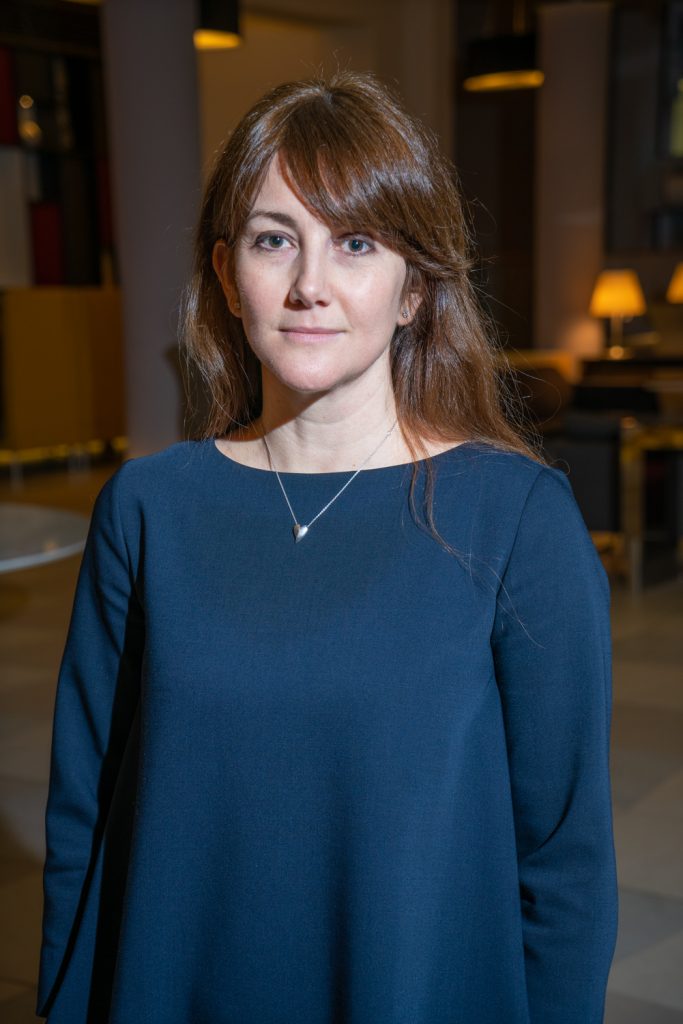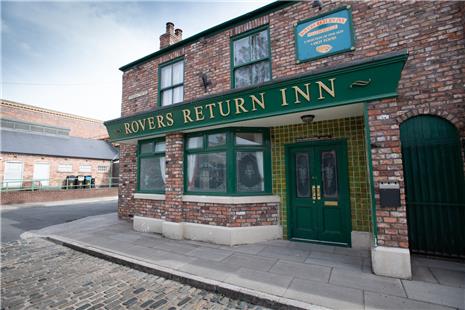By Lou Cordwell, Co-Chair Greater Manchester Local Enterprise Partnership
For all the drama and shouting, through decades of kissing and making up, nothing much appears to have changed in Coronation Street, which still reflects life in the fictional Manchester suburb of Weatherfield, as it has done now for 60 years.
From the imagination of visionary Salford scriptwriter Tony Warren came a serial drama which has proven to be the world’s most resilient soap, still enchanting audiences the world over, providing insight into other people’s lives as a distraction to the reality of our own.
But as we pause to congratulate ITV on 60 glorious years of Coronation Street, it’s also worth considering the true legacy of this unique and continuing experiment in technology and storytelling.
While the cobbles might be intact and the Rovers still serves pints of warm bitter, Coronation Street can arguably be held up as a catalyst for Greater Manchester’s emergence as a powerhouse in the creative, digital and technology sectors.
Rewind to December 9 1960, when a young William Roache appeared alongside screen parents Frank Pemberton and Noel Dyson in the first ever scene in the first ever episode of Coronation Street. It was a ground-breaking moment in media, with that first black and white episode transmitted live into 3.5m homes.
Only six years earlier, Sidney Bernstein had founded Granada Studios in Manchester, one of the original four Independent Television Authority franchisees, and the regional television company for the North West had discovered a winning formula which would underpin the creative spirits of the region.
Alongside the commotion on the cobbles, Granada Television would give us World In Action, Sherlock Holmes, Stars In Their Eyes, So It Goes, sparking the stellar careers of Russell T Davies, Nicola Shindler, Paul Abbott, Kay Mellor, Sir Michael Parkinson and Tony Wilson.
Talent that might previously have left for London carved a career here, fuelling the spirit of innovation that we’re famous for today.
Look across Greater Manchester’s burgeoning digital, creative and tech sector and you could argue that it thrives partly due to the pioneering spirit of Sidney Bernstein’s sense of the opportunities outside London; through Tony Warren’s creativity; the brassy vulnerability of Bet Lynch; Mike Baldwin’s ‘entrepreneurial’ spirt; the continuing drama of Yasmeen Nazir being found not guilty of attempting to murder abusive husband Geoff Metcalfe (a recent storyline if you’ve not been tuning in).
Audience numbers have been fragmented by additional channels and distractions on our time, but Corrie still averages an incredible 6-7 million viewers per episode, as well engaging with fans online via social media, and in person at the studio tour.
Relocated from its original home in Quay Street to a state-of-art production facility at MediaCityUK, Coronation Street is still powered by the same brilliant screenwriting, acerbic humour and warmth.
Viewers probably don’t (and aren’t meant to) realise that Corrie today is a far cry from the black and white creation seen in 1960. Its cameras are 4K and its broadcast facilities second to none, the largest single TV production site in the world.
But Corrie’s impact lies beyond the ITV Studio on the Trafford side of the Ship Canal. It’s felt across MediaCityUK, which is also home to the BBC’s Northern outpost; the University of Salford campus cultivating the next generation of media talent; and into tech businesses like BUPA and TalkTalk, which are today’s creative businesses.
And it’s felt across Greater Manchester. Famously composed by Eric Spear more than half a century ago, Corrie’s theme music should still resonate with the young people embarking on digital and creative careers via FutureSkills, Sharp Futures, or Ada Manchester, a new outpost for the National College for Digital Skills. Supported by Greater Manchester Local Enterprise Partnership, we’ll soon build on our capabilities with the exciting new School of Digital Arts – SODA – at Manchester Metropolitan University.
Corrie must take at least some credit for Greater Manchester today being recognised as one of Europe’s largest creative digital and technology clusters, home to a fast-growing £5bn digital ecosystem.
Greater Manchester is home to Europe’s largest purpose-built digital hub, MediaCityUK, and with a heritage of broadcast and media production, marketing and advertising as well as specialist skills in service design, animation, gaming, augmented and virtual realities. Greater Manchester is a place where creativity and technology are jointly driving the next wave of innovation in the creative and media industries.
Greater Manchester’s thriving creative, digital and technology community of more than 10,000 businesses now includes businesses like The Hut Group and AO.com. The ecosystem comprises companies at all stages, from start-ups and SMEs to global brands and homegrown unicorns that IPO above $1 billion; all of which converge and collaborate in the city’s creative, digital and media hubs.
Our emerging strengths in digital and tech aren’t really new at all. They’re just the latest chapter in a celebrated saga that’s being playing out for generations, constantly evolving, reacting to the times, believing in people and innovating to achieve better while never forgetting its roots.
Congratulations to Coronation Street. Here’s to many more years of creativity and talent in Greater Manchester.
Go to www.gmlep.com/insights to find out more about the work of Greater Manchester Local Enterprise Partnership

Lou Cordwell, Co-Chair Greater Manchester Local Enterprise Partnership

Rovers Return Inn, Coronation Street
